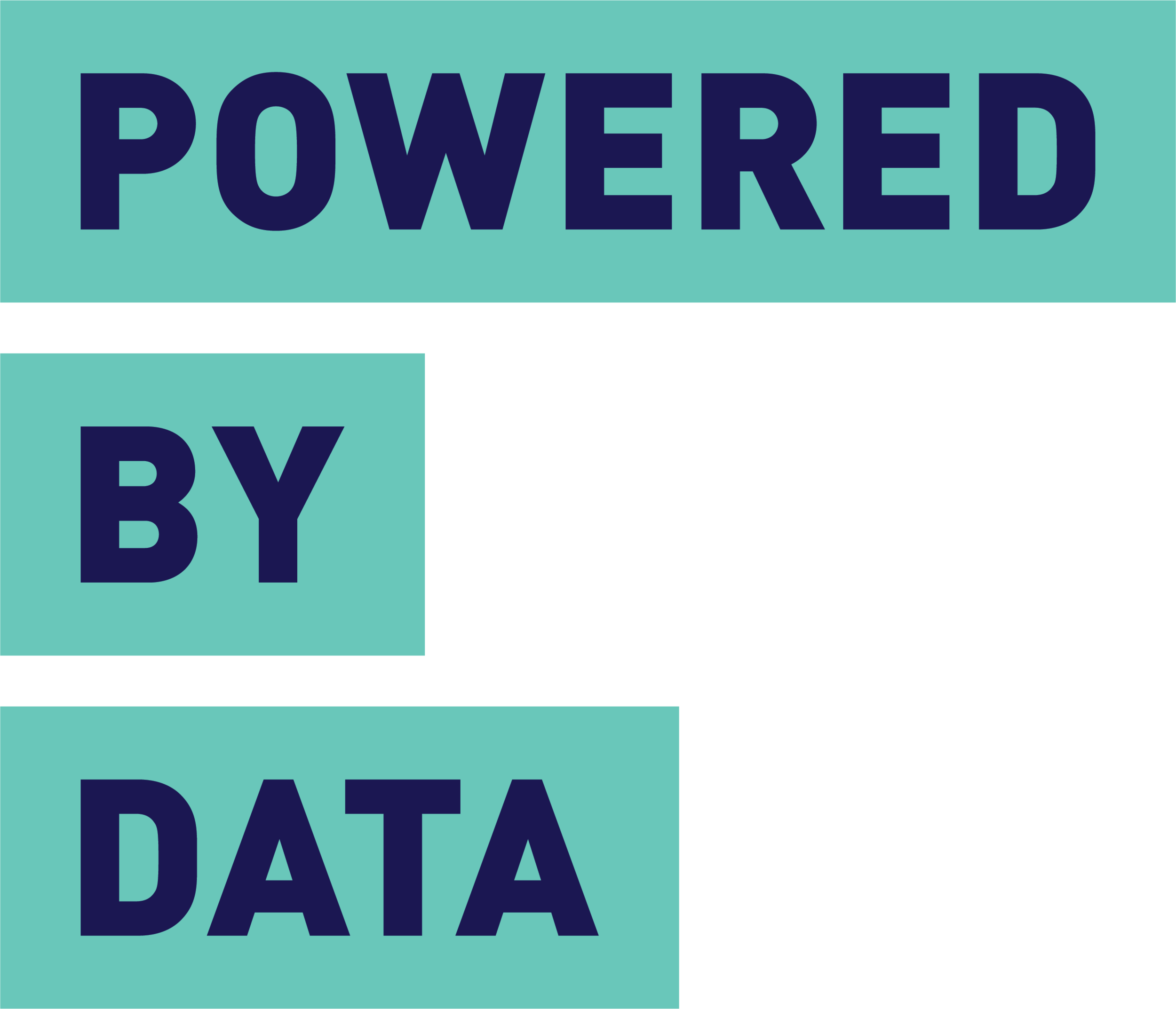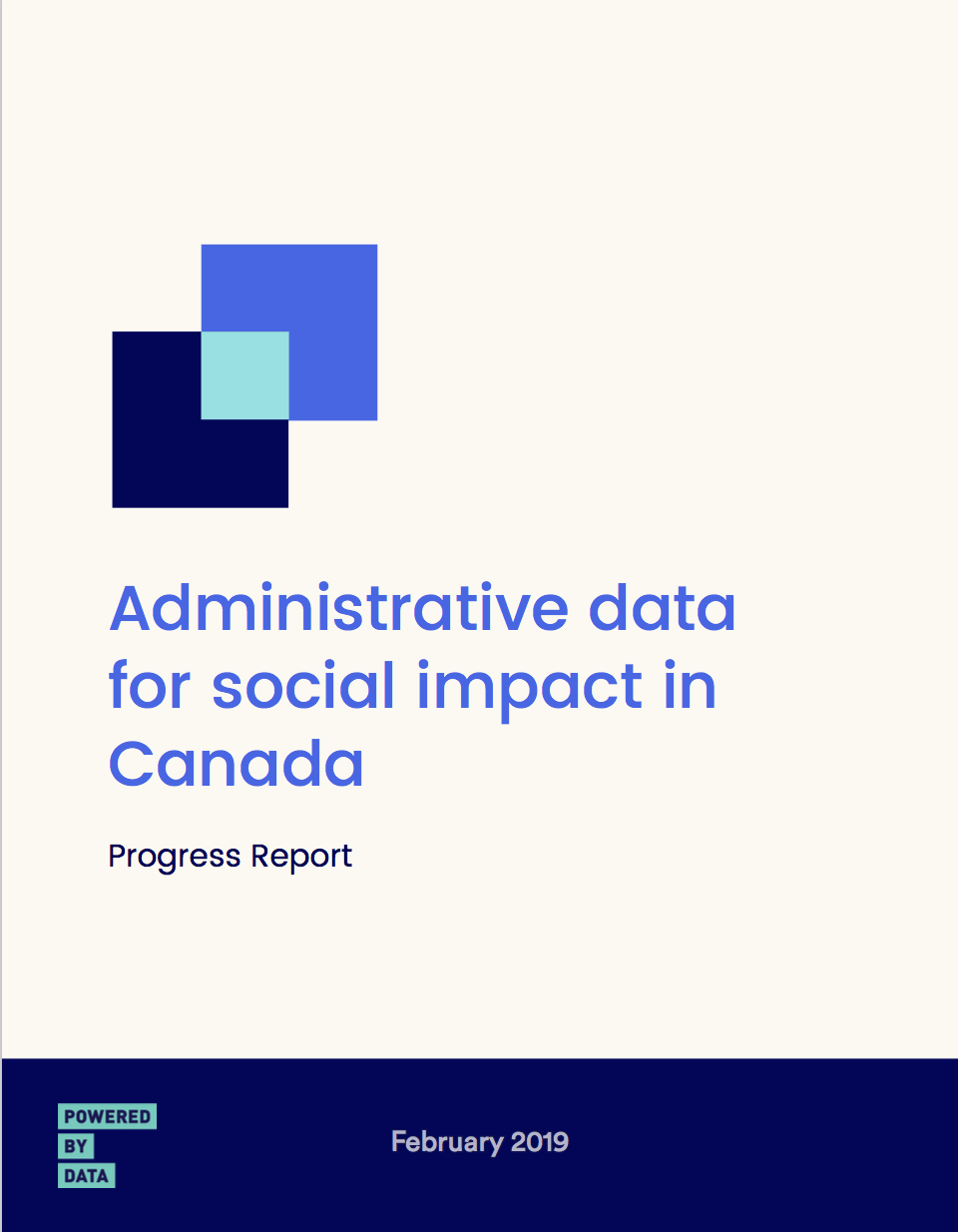Progress update: Exploring administrative data reuse in Canada with civil society
Over the last year, we have been building towards a data policy coalition made up of diverse stakeholders from civil society. Advocacy groups, nonprofit service providers, and foundations will work together to shape a policy agenda on increasing administrative data reuse for social impact in Canada. We’re excited about this work because we believe that greater access to administrative data can enable nonprofits to improve their evaluation methods, advance advocacy efforts, and inform program planning.
We’re also excited because we see this work as an innovative approach to inclusive digital policy-making. All too often, the perspectives of civil society are excluded from large-scale digital infrastructure projects—particularly marginalized communities whose digital rights are most at risk of being compromised. As we move into this new year—and prepare to hire a Program Director to help formally launch this coalition—we’ve summarized our activities, progress, and learnings from 2018 in a progress report.
You can also download the report’s Executive Summary here.
What we did in 2018
We held a series of roundtables bringing together over fifty civil society stakeholders to explore the opportunities and risks of administrative data reuse for the nonprofit sector. We consulted with advocacy groups, nonprofits, and foundations about whether we had a mandate to move forward on a policy initiative.
We interviewed nonprofit service providers and advocacy groups about the ways administrative data reuse could further their work—including the Canadian HIV/AIDS Legal Network, Youth in Care Canada, Access Alliance, and Peacebuilders Canada
We presented and held workshops on this topic at several conferences, including the Digital Inclusion Summit and meetings organized by the Ontario Nonprofit Network, OCASI, Philanthropic Foundations Canada, and First Work.
We conducted desktop research and spoke to subject-matter experts to better understand existing momentum for administrative data reuse in Canada.
What we learned—some highlights
There is an appetite for administrative data reuse amongst Canadian nonprofits and advocacy groups. Organizations we spoke to expressed interest in using administrative data to improve outcomes evaluation, support their advocacy efforts, and inform program planning.
Many groups expressed a need to change the way data are collected during service provision. For example, a number of groups expressed a desire for disaggregated race-based data as an advocacy tool for highlighting systemic inequities.
There are important risks to increased administrative data sharing and reuse that need to be considered. Many nonprofits are concerned about the possibility of amplifying systemic inequities, reducing non-profit autonomy, and violating consent around person-level data.
Many stakeholders underscored the importance of an inclusive exploration of these risks. Questions have been raised around how to prevent potential negative impacts of data-sharing—with an emphasis on building a diverse coalition, ensuring community involvement in decision-making processes, and centering the interests of marginalized communities.
What we have planned for 2019
We’re excited about the work we have in store in the coming year. We’ll be working on:
Hiring a Program Director to bring this vision to life. We’ve received applications from nearly 100 incredibly qualified candidates, and we’re excited to introduce you to the new Director of this initiative by the end of next month!
Confirming a governance framework that strives for equitable decision-making across diverse stakeholder groups—and formally launching a civil society coalition that will shape a policy agenda on administrative data reuse.
Developing a list of shared principles for carrying this work forward, as a precursor to articulating a shared policy agenda. We’ll also work together to identify what issue areas could be explored more deeply as potential pilot projects.
Exploration of how Indigenous data governance and OCAP principles regarding Indigenous ownership, control, access, and possession of data—can be integrated into a data policy agenda. This is an area that we recognize we struggled to properly address in 2018. We are looking forward to working in collaboration with Indigenous advisors and coalition members in 2019 to address these questions over the coming year.
You can learn more about our work on administrative data so far by reading our full 2018 Progress Report or downloading the Executive Summary.
Powered by Data would like to thank our four co-convening partners and advisors who have helped shape this initiative: Philanthropic Foundations Canada, the Ontario Nonprofit Network, Colour of Poverty - Colour of Change, and Dr. Janet Smylie of Well Living House.
Powered by Data is grateful to the following funding partners for sustaining this initiative’s 2019 activities: the Counselling Foundation, the Graham Boeckh Foundation, the Lawson Foundation, the McConnell Foundation, the Metcalf Foundation, the Toronto Foundation, the Trottier Family Foundation, and Virgin Unite.
We are also grateful to the Ontario Trillium Foundation for their initial support and partnership in developing this initiative.

